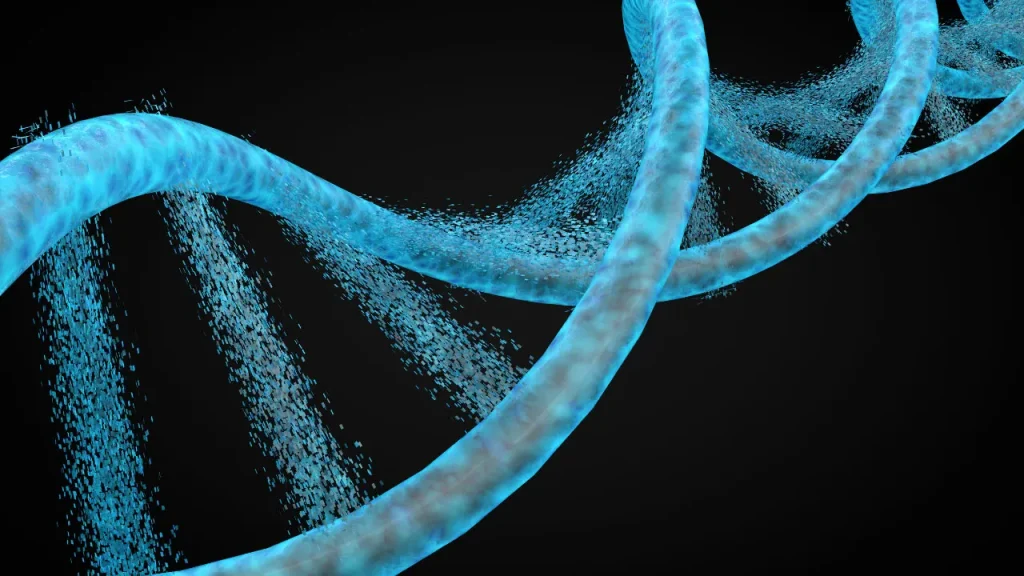Boxwood (buxus spp.) are a family of slow-growing evergreen shrubs that are indigenous to a number of places on earth, including Europe, Asia, and Africa. The two most popular boxwood varieties are the common boxwood (buxus sempervirens) and the Japanese boxwood (buxus microphylla). There are more than 70 different boxwood species. In gardens and hedges, boxwood has long been used as a decorative plant. The potential health advantages of boxwood as a dietary supplement, however, have drawn more attention lately. This article will look at the characteristics of boxwood, its health advantages, the best dosage, any possible negative effects, possible drug interactions, and other pertinent information for the responsible use of this supplement.
You May Also Like:
5 Great Nootropic Herbs for Focus and Mental Clarity
5 Great Nootropic Herbs for Energy, Focus, and Productivity
Boxwood: Benefits, Dosage, Side Effects, Drug Interactions, and Other Important Information is an original (NootropicsPlanet) article.
Nature of Boxwood
Boxwood includes several bio-active components, including alkaloids, flavonoids, phenolics, tannins, and essential oils. Among these, alkaloids have been identified as the key active elements responsible for the plant’s possible health benefits. These alkaloids, notably steroidal alkaloids like buxaminol, buxaminol-A, and buxaminol-B, have been shown to have a variety of pharmacological actions such as anti-inflammatory, antioxidant, and anticancer properties.
Health Benefits of Boxwood
3.1 Anti-Inflammatory Properties
Inflammation is the body’s normal response to damage or infection, but persistent inflammation can lead to a variety of health problems, including cardiovascular disease, cancer, and neurological disorders. Research has shown that boxwood extract offers considerable anti-inflammatory effects. Boxwood steroidal alkaloids have been shown in vitro and in vivo to inhibit the production of pro-inflammatory mediators such as tumor necrosis factor-alpha (TNF-) and interleukin-6 (IL-6) by suppressing the activation of nuclear factor-kappa B (NF-B) and mitogen-activated protein kinases (MAPKs).
3.2 Antioxidant Property:
Oxidative stress, induced by an imbalance between the body’s antioxidant defenses and the formation of reactive oxygen species (ROS), has been linked to a number of clinical illnesses, including aging, cardiovascular disease, and neurological disorders. Because of its phenolic components and flavonoids, such as quercetin and kaempferol, boxwood has been proven to have powerful antioxidant capabilities. These chemicals have the ability to scavenge free radicals, chelate metal ions, and regulate the activity of antioxidant enzymes like superoxide dismutase (SOD), catalase (CAT), and glutathione peroxidase (GPx).
3.3 Anti-tumor Activity:
Boxwood’s steroidal alkaloids have shown promise in the treatment and prevention of cancer. These alkaloids have been shown in vitro to decrease the proliferation of different cancer cell lines, including breast, prostate, and colon cancer cells. The anti-cancer effect of boxwood alkaloids is considered to be achieved by the induction of apoptosis (programmed cell death), cell cycle arrest, and prevention of angiogenesis (creation of new blood vessels). Furthermore, in vivo studies have revealed that boxwood extract can decrease tumor growth and spread in animal models of cancer.

Chemistry of Boxwood
9.1 Alkaloids:
Boxwood contains a range of alkaloids, the most important of which are steroidal alkaloids, which may have health advantages. Some of the primary steroidal alkaloids found in boxwood include buxaminol, buxaminol-A, and buxaminol-B. The complex chemical structure of these alkaloids, which includes a steroid nucleus and an amine group, contributes to their biological properties.
9.2 Flavonoids and Phenolic Compounds:
Boxwood also contains a high concentration of flavonoids and phenolic compounds, such as quercetin, kaempferol, and various phenolic acids. These chemicals have antioxidant characteristics and are in charge of the plant’s radical-scavenging activities. Flavonoids are a type of polyphenolic substance distinguished by the chemical structure of two aromatic rings joined by a three-carbon bridge.
Physiological Properties of Boxwood
10.1 Mechanism of Anti-Inflammation
Boxwood’s steroidal alkaloids have been shown to have anti-inflammatory properties by inhibiting the production of pro-inflammatory mediators. These alkaloids can decrease the activation of nuclear factor-kappa B (NF-κB) and mitogen-activated protein kinases (MAPKs), which are major signaling pathways implicated in the inflammatory response. Boxwood alkaloids can successfully lower inflammation in a variety of clinical situations by blocking these pathways.
10.2 Mechanism of Antioxidants
Flavonoids and phenolic chemicals in boxwood contribute to its antioxidant properties. These chemicals can scavenge free radicals, chelate metal ions, and alter antioxidant enzyme activity. Specifically, the flavonoids in boxwood can neutralize reactive oxygen species (ROS), preventing oxidative damage to cellular components such as DNA, proteins, and lipids. Furthermore, the phenolic compounds in boxwood might increase the activity of endogenous antioxidant enzymes such as superoxide dismutase (SOD), catalase (CAT), and glutathione peroxidase (GPx), which protects the body from oxidative stress.
10.3 Cancer Prevention Mechanism
Boxwood’s steroidal alkaloids have anticancer properties through a variety of mechanisms. By altering the expression of pro-apoptotic and anti-apoptotic proteins like Bax and Bcl-2, these alkaloids can trigger apoptosis, or programmed cell death, in cancer cells. They can also trigger cell cycle arrest, preventing cancer cells from proliferating uncontrollably. Furthermore, by suppressing the expression of angiogenic factors such as vascular endothelial growth factor (VEGF) and matrix metalloproteinases (MMPs), boxwood alkaloids can inhibit angiogenesis, the formation of new blood vessels that support tumor growth and metastasis.


Optimal Dosage of Boxwood
The recommended dosage of boxwood as a dietary supplement relies on various factors, such as your age, weight, and health status. Boxwood does not currently have a set recommended daily allowance (RDA). However, clinical research has used daily doses of boxwood extract ranging from 50 to 500 mg, and some encouraging results have been noted in these trials. Before beginning any new supplement, including boxwood, it’s important to speak with a medical professional to establish the right dosage based on medical needs and potential side effects.
Side Effects of Boxwood
Boxwood is usually safe when taken as a dietary supplement in the proper dosages, however some people may have side effects. GI disturbances include nausea, vomiting, diarrhea, and abdominal discomfort are among the most frequently reported side effects. They usually only last a short time and go away on their own with ongoing usage or dose reduction.
The skin rashes, itching, and swelling of the face, lips, or tongue that are sometimes associated with allergic responses to boxwood have been documented. Boxwood usage should be stopped right once if you exhibit any symptoms of an allergic response, and you should also see a doctor.


Potential Substance Interactions with Boxwood
Certain prescription drugs and other dietary supplements may interact with boxwood. The following are some possible interactions to be aware of:
6.1 Antiplatelet and Anticoagulant Medications:
When used with anticoagulant medications like warfarin or antiplatelet medications like aspirin and clopidogrel, boxwood can have anticoagulant and antiplatelet effects that can raise the risk of bleeding. If you are using any of these drugs, check with your healthcare provider before using boxwood.
6.2 Medicines for Hypertension:
When used with anti-hypertensive medications, boxwood can have additional hypotensive effects. Before using boxwood, check with your doctor if you are on medication to lower your blood pressure.
6.3 Drugs Used in Chemotherapy:
Boxwood has shown anti-cancer actions, therefore it can interact with chemotherapy medications and perhaps reduce their effectiveness. Before utilizing boxwood, if you are receiving cancer treatment, speak with your physician.
Responsible Uses of Boxwood Nutritional Supplement
Consider the following suggestions to guarantee the appropriate and safe use of boxwood as a dietary supplement:
7.1 Consult a medical expert:
Consult a healthcare provider before beginning any new supplement, including boxwood, to establish the right dose based on unique requirements and any contraindications.
7.2 Select a Reputable Brand:
Choose a reliable company that sells standardized boxwood extracts to guarantee constant strength and quality.
7.3 Adhere to the Suggested Dosage:
To reduce the risk of adverse effects and interactions, follow the dose and usage instructions prescribed by the manufacturer or your healthcare provider.
7.4 Keep an eye out for interactions and side effects:
Watch out for any side effects or interactions with any other prescription drugs or dietary supplements you may be taking. Stop using boxwood immediately and seek medical advice if you have any negative effects.
Boxwood:
Conclusion
There are many positive attributes when it comes to taking boxwood as a supplement and it can impact your health in a positve way as well. However, like any other drug or supplement, there are always potential side effects that you shoudl be aware of before taking them. Historically, even Native Americans have used boxwood to treat rheumatism, arthritis, fever, malaria and skin ulceration. To be sure this supplement is best for you, make sure to talk to your doctor before trying it, especially if you are undergoign treatment for cancer.


References:
- Anti-inflammatory and analgesic activities of Buxus sempervirens. Retrieved from: https://pubmed.ncbi.nlm.nih.gov/16298093/
- Buxus sempervirens L. (boxwood) extract induces apoptosis and cell cycle arrest in human colon cancer cells. Retrieved from: https://onlinelibrary.wiley.com/doi/abs/10.1002/ptr.5244
- Antiproliferative and proapoptotic activities of Turkish boxwood on breast cancer cells. Retrieved from: https://journals.plos.org/plosone/article?id=10.1371/journal.pone.0196762
Important Note: The information contained in this article is for general informational purposes only, and should not be construed as health or medical advice, nor is it intended to diagnose, prevent, treat, or cure any disease or health condition. Before embarking on any diet, fitness regimen, or program of nutritional supplementation, it is advisable to consult your healthcare professional in order to determine its safety and probable efficacy in terms of your individual state of health.
Regarding Nutritional Supplements Or Other Non-Prescription Health Products: If any nutritional supplements or other non-prescription health products are mentioned in the foregoing article, any claims or statements made about them have not been evaluated by the U.S. Food and Drug Administration, and such nutritional supplements or other health products are not intended to diagnose, treat, cure, or prevent any disease.
